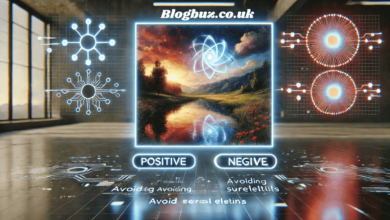Is Calling Someone Sunshine Flirting? Unpacking the Meaning Behind the Nickname

In everyday conversations, people often use affectionate terms and nicknames to express emotions, set the tone, or build relationships. One such term that sparks curiosity and occasional confusion is “sunshine.” But what does it mean when someone calls you sunshine? More specifically, is calling someone sunshine flirting? This article explores the emotional nuance, social implications, and relationship contexts behind the use of “sunshine” as a term of endearment. We’ll dive into various interpretations, cultural insights, and social cues that can help determine whether it’s friendly, flirtatious, or somewhere in between.
The Meaning of ‘Sunshine’ as a Nickname
The word “sunshine” generally evokes feelings of warmth, brightness, positivity, and joy. When used to describe a person, it often means that the individual brings happiness and light into someone else’s life. Calling someone sunshine can be seen as a compliment, highlighting their optimistic, cheerful, or kind-hearted nature.
Common interpretations include:
- A Compliment: You’re seen as a bright, joyful person.
- A Mood Booster: You uplift others or make their day better.
- A Positive Influence: Your presence and personality stand out for their warmth.
These interpretations alone don’t indicate romantic interest, but they certainly create a space for more affectionate and possibly flirtatious exchanges, depending on the context.
Is Calling Someone Sunshine Always Flirting?
Not necessarily. Like many terms of endearment, the intent behind calling someone sunshine can vary based on several factors:
- Context of the Relationship: Are the individual’s friends, coworkers, or romantic partners?
- The tone of Voice: Was it playful, sultry, sarcastic, or sincere?
- Frequency of Use: Is this a one-off comment or a regular nickname?
- Exclusivity: Is the nickname used just for you or others as well?
When combined with flirtatious body language or romantic interest, calling someone sunshine is a subtle form of flirting. But in isolation, it’s not a definitive indicator.
Friendly vs. Flirtatious: How to Tell the Difference
To better understand whether calling someone sunshine is flirtatious, consider these signs:
Signs It’s Probably Friendly:
- Used in a professional or casual setting.
- Accompanied by a neutral or friendly tone.
- The person uses similar nicknames for others (e.g., “buddy,” “champ,” “honey”).
- There’s no additional physical or emotional intimacy.
Signs It Might Be Flirting:
- Said in a teasing or endearing tone.
- Accompanied by flirty body language (eye contact, playful touches).
- Exclusively used for one person.
- Paired with compliments or personal conversations.
- Occurs in private or intimate contexts (texting late at night, DMs).
Reading the situation holistically is key. A nickname alone rarely carries all the meaning—context always plays a role.
Cultural and Generational Perspectives
The interpretation of nicknames like “sunshine” can also be influenced by cultural and generational factors:
- Older Generations: Often use endearments like “sunshine,” “sweetheart,” or “dear” in a friendly, non-romantic way.
- Younger Generations May associate such terms with affection, romance, or even irony.
- Regional Differences: In some cultures or regions, using affectionate terms casually is more common and less loaded.
Being cognizant of these differences can help prevent misinterpretations or awkward social situations.
Social Media and Pop Culture Influence
Pop culture and social media platforms, such as TikTok, Instagram, and Reddit, have also influenced how people interpret terms like “sunshine.”
- Memes and Trends: Many memes play on the dual meaning of words like “sunshine,” often using them in a humorous or ironic manner.
- Celebrity Usage: When a celebrity calls a fan or another person “sunshine,” it can spark speculation about intent.
- Online Dating: In the context of dating apps or private messaging, “sunshine” can be a gentle way to flirt without being too forward.
Because tone is often lost in digital communication, understanding the intent can be more challenging; therefore, reading the overall interaction is crucial.
Gender and Power Dynamics
Gender norms and workplace power dynamics can also color the implications of calling someone sunshine:
- From a Male to a Female: Can be perceived as flirtatious, paternalistic, or condescending, depending on delivery.
- From a Female to a Male: May be received as playful, flirtatious, or nurturing.
- In the Workplace: Using such nicknames in professional settings can be risky, as it may be perceived as unprofessional or inappropriate.
It’s essential to gauge comfort levels and boundaries, especially when using terms that can be interpreted in multiple ways.
Testimonials and Real-Life Scenarios
The Friendly Coworker
“I work in a fast-paced office, and one of my colleagues often greets everyone with cheerful nicknames. One day he said, ‘Good morning, sunshine!’ I didn’t think much of it until others started teasing me about it. But I realized he says similar things to everyone. It was just his friendly way.”
The Romantic Interest
“My crush started calling me ‘sunshine’ in our texts. He never used that name before, and it felt personal. Then he added heart emojis and compliments. It became obvious he was flirting.”
These examples illustrate the significance of considering the broader context.
Alternatives to “Sunshine” and Their Meanings
If you’re unsure whether to use “sunshine” or curious about similar terms, here are a few with their potential interpretations:
- Sweetheart: Often romantic or deeply affectionate.
- Darling: Can be romantic, theatrical, or affectionate.
- Hun/Babe: Typically used in romantic relationships.
- Buddy/Pal: Friendly and platonic.
Knowing your audience and setting helps you choose the right word for the right moment.
Tips for Communicating Intent Clearly
Whether you’re the one using the nickname or receiving it, clear communication can help avoid misunderstandings:
- Ask Clarifying Questions: If you’re unsure why someone used a nickname, it’s okay to ask. “You always call me sunshine—just curious, where did that come from?”
- Watch for Patterns: Do they use it only with you? Is it escalating?
- Set Boundaries: If you’re uncomfortable with nicknames, it’s fair to say so.
- Use Mirroring: If someone flirts subtly and you’re interested, use similar language back.
Conclusion: So, Is Calling Someone Sunshine Flirting?
The answer is that it depends. Calling someone sunshine can be a warm, friendly gesture or a subtle form of flirtation. The key lies in the context, tone, relationship dynamic, and individual personalities involved. While the nickname itself is generally positive and endearing, its emotional weight varies widely.




